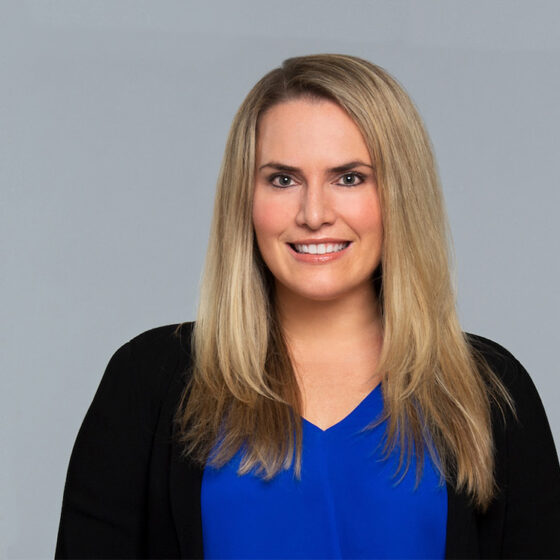Videos,
Videos,
ADVI expert, Lindsay Bealor Greenleaf, solution leader, federal and state policy, sat down to share her key takeaways from the Texas Society for Clinical Oncology Conference (TxSCO), including the big policy takeaways that oncologists are tracking related to the 2024 election and what we can expect to get accomplished legislatively during the lame duck period. Also discussed was the ability for in-office dispensers to mail ship drug, which is a big issue for a lot of oncologists, and touched on what to expect with patient out of pocket costs for next year.
Lindsay states that the most significant takeaway from the event was the Medicare physician fee schedule proposed rule related to the proposed conversion factor cuts for next year. CMS has proposed a conversion factor cut of 2.8 percent for 2025, and if it is finalized, it would represent the 5th consecutive year of cuts under the Medicare physician fee schedule.
Learn more about ADVI’s federal and state policy expertise.
Some of our key takeaways included the big policy issues that oncologists are tracking related to the 2024 election, and what we can expect during the lame-duck period to hopefully get accomplished legislatively.

Lindsay Bealor Greenleaf, JD MBA
Solution Leader, Federal and State Policy
Lindsay leads ADVI’s policy team and guides legislative, regulatory, and market access efforts across payers for clients spanning the pharmaceutical, biotechnology, device, diagnostic, and digital health industries, as well as physician practices and specialty societies.
Lindsay Bealor Greenleaf: Last week I had the pleasure of participating on a panel at the Texas Society for Clinical Oncology Conference (TxSCO) in San Antonio, Texas, and we talked about a range of issues that oncologists are paying close attention to. Some of our key takeaways included the big policy issues that oncologists are tracking related to the 2024 election, and what we can expect during the lame-duck period to hopefully get accomplished legislatively.
Top of mind, things like extending telehealth flexibilities, the flexibilities that were put in place during the public health emergency. There’s great hope that we’re going to get a lot of those flexibilities extended for future years, possibly in lame duck. Another key issue we talked about was the ability for in-office dispensers to mail-ship drug. This is a big one for a lot of oncologists. There is a bill that just passed the House that would exempt in-office dispensers from the Stark Law policies that are currently in place by CMS that currently prohibit mail ship of drugs for these in-office dispensers. We hope that Bill passes the Senate soon, and that’s a key policy we’re tracking for lame duck.
Other issues we talked about were more of a patient perspective are what to expect with patient out-of-pocket costs going into next year. There are big changes that take effect January 1 with the IRA’s Part D redesign being fully implemented, and that $2,000 out-of-pocket cap going into place, is also key for cancer patients. There’s also a policy called “Copay Smoothing,” known as the Medicare payment plan that will allow patients to spread out the costs of $2,000 out-of-pocket costs throughout the plan year. So for patients taking expensive drugs in Part D, which includes a lot of cancer drugs, that’s a really key policy that’s going to help a lot of patients afford their prescriptions at the pharmacy counter.
We also talked about another IRA topic a little bit further out from a timing perspective, but what to expect with provider reimbursement of physician-administered drugs that are subject to a negotiated price. This is top of mind for drugs like Ktruda and Opdivo that a lot of folks expect to be targeted for negotiated price in 2028. Right now, under current law, there’s a formula in place that could make it so that providers are underwater with their reimbursement from commercial and Medicaid payers when it comes to getting ASP+6, based reimbursement for those negotiated drugs. Some bills and policies are being proposed right now to fix that. Congress tends to wait until the last minute to fix problems like this, so we’re not expecting any of that to change in lame duck or the near term. But it’s certainly such a big issue for the oncology community that we’re watching it closely, and hoping to get changes in the next few years before January 1, 2028, and this policy becomes effective.
I would note that of all of these issues, though, what was probably the biggest thing that we talked about that really had the attention of the audience was a proposal in the Medicare physician fee schedule proposed rule related to the proposed conversion factor cuts for next year. This is the way that the physician’s office setting is reimbursed for their Medicare services. CMS has proposed a conversion factor cut of 2.8 percent for 2025. No one wants to get a pay cut of 2.8 percent, that alone is bad enough. What’s really the problem here is, if this is finalized, this will represent the fifth consecutive year of cuts under the Medicare physician fee schedule, so doctors are hurting when it comes to their Medicare reimbursement at the physician office level. There’s hope that Congress can come to the rescue. This is something that we always talk about in the context of CMS proposing it through rulemaking, but this really is a statutory problem that CMS has to implement the Medicare physician fee schedule in a budget-neutral manner. So whether we get these cuts fixed is up to Congress, and there are a lot of lobbying efforts underway and a lot of hope that during the lame duck period, possibly for some end-of-year package, we’re going to get some kind of relief for that 2.8 percent cut that’s looming for January 1, 2025.
If we look to the past, we’ve often had Congress help and get these cuts fixed, at least to some extent. It’s unlikely that we’re going to get it completely wiped out, maybe just something lower than a 2.8 percent cut is what we’re shooting for here. We’re going to see how best we can do. And again, the timing on that is going to be likely after the election. So those are some topics that were top of mind at the TxSCO last week. We’re tracking all these issues very closely, working with our clients on the next steps. If you need more information, please reach out.
Learn More
Stay ahead of the curve this year. Get in touch today to gain expert insights and strategic counsel on the evolving healthcare landscape.

Head of Policy, Research, and Analysis